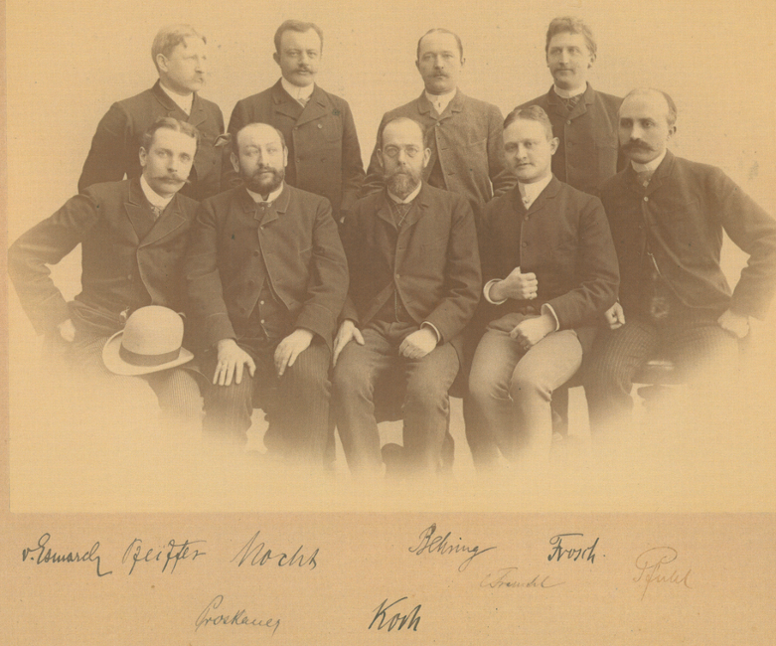Robert Koch's students
Date: 03/12/2018


| Emil von Behring (1854-1917)Immunologist and serologist. Developed antisera against diphtheria and tetanus; founded the Behring-Werke in Marburg. Nobel Prize in Medicine, 1901. |

| Paul Ehrlich (1854-1915)Doctor and researcher. Founder of chemotherapy; developed drugs against syphilis and an antiserum against diphtheria. Nobel Prize in Medicine, 1908. The Paul-Ehrlich-Institut, the Federal Institute for Vaccines and Biomedicines, was named after him. |

| Paul Frosch (1860-1928)Bacteriologist and co-founder of virology. Isolated the foot and mouth disease pathogen and fought malaria, plague, typhus. |

| Georg Gaffky (1850-1918)Bacteriologist and hygienist. Cultivated, amongst others, typhus pathogens in pure cultures. |

| Shibasaburo Kitasato (1853-1931)Investigated tetanus and diphtheria, demonstrated the efficacy of antisera. Founder of today’s Kitasato Institute in Tokyo. See also Friend and Ally - Shibasaburo Kitasato and Robert Koch |

| Friedrich Loeffler (1852-1915)Physician. Discovered, amongst others, the glanders and diphtheria pathogens, investigated foot and mouth disease. Co-founder of virology and founder of today’s Friedrich Loeffler Institute for Animal Health on Riems Island. |

| Bernhard Nocht (1857-1945)Harbour physician and tropical medicine specialist. Recommended the establishment of a health monitoring service for Hamburg Harbour. Founder of today’s Bernhard Nocht Institute for Tropical Medicine. |

| Lydia Rabinowitsch-Kempner (1871-1935)Microbiologist. Demonstrated, amongst other things, that tubercle bacteria are transmitted in cow’s milk. First woman in Berlin to hold the title of professor. |
